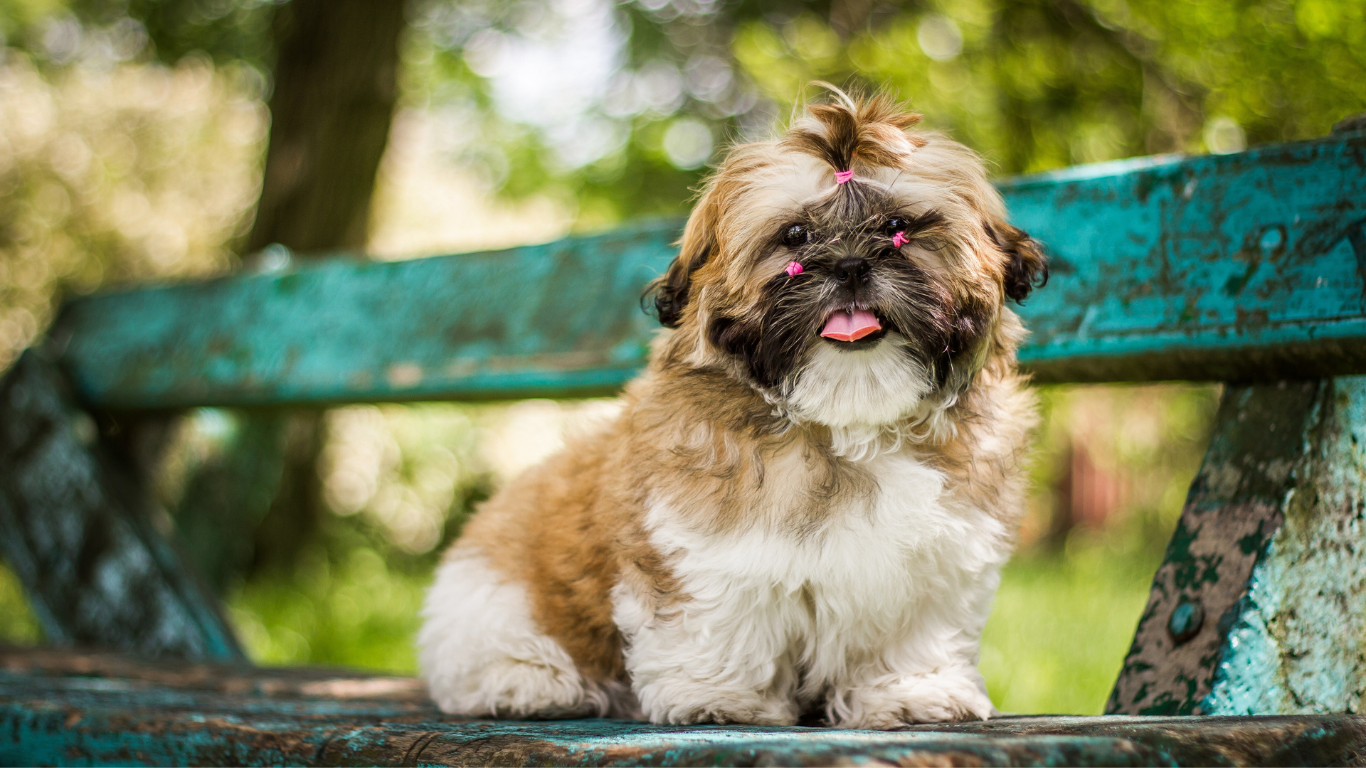Your Shih Tzu’s diet sets the basis for a lot in their life, including their health and level of comfort. It’s easy to get overwhelmed with all the options available now, but learning how to navigate labels and weed out lower-quality foods helps you make the right decision.

- How to choose the best dog food for your Shih Tzu?
- What is the best dog food for my Shih Tzu?
- Considerations When Choosing the Best Food for Your Shih Tzu
- Does your Shih Tzu have Health Conditions?
- Life Stage
- Ingredients
- Grain-Inclusive vs. Grain Free
- Budget
- Common Diet Concerns With Shih Tzus
- Final Thoughts and Recommendations
How to choose the best dog food for your Shih Tzu?
What is the best dog food for my Shih Tzu?
There is no umbrella food that is good for every Shih Tzu. The best foods are verified as nutritionally adequate, supply the proper nutrients for a dog’s life stage and any medical conditions they may have, and focus on quality ingredients and facilities.
This article explains certain deal breakers you have when choosing food and where you have a bit of decision-making freedom.
We also look into some common diet-related issues that Shih Tzus are prone to before making a few recommendations that we know firsthand to be good as we feed our dogs these products.
Considerations When Choosing the Best Food for Your Shih Tzu
When choosing a food for your Shih Tzu, make sure:
- The food meets any dietary concerns related to medical conditions
- There is verification for nutritional adequacy for your dog’s stage of life
- The ingredients are high-quality and the label lacks fillers
You will also need to decide whether you want to look at grain-free or grain-inclusive diets, which have created a major divide in commercially available food.
After you’ve established all your needs in these areas you can start looking for options in your budget.
Does your Shih Tzu have Health Conditions?
 Shih Tzu have Health Conditions?” class=”wp-image-1096″/>
Shih Tzu have Health Conditions?” class=”wp-image-1096″/>The most immediate concern regarding diet and medical history is whether there are any known allergens in the food.
Shih Tzus appear more prone to food allergies and sensitivity, so avoiding suspect ingredients can save you money while keeping your companion happy and healthy.
- Other medical concerns you can address through a therapeutic diet include:
- Weight (Under or over)
- Renal support
- Digestive issues
- Heart health
- Neurologic health
Your vet may prescribe a certain diet or have specific input on what you need to look for.
Life Stage
The next most important detail to look at is whether a food meets the nutritional standards established by AAFCO. A dog food company must meet these standards to claim their product is complete and balanced and have the information validated through a nutrient content analysis or AAFCO-compliant feeding trial.
As a consumer, you want to look for an adequacy statement along the lines of “[this food] is formulated to meet the nutritional levels established by the AAFCO Dog Food Nutrient Profiles”.
Avoid anything marked for intermittent or supplemental feeding (unless used intermittently or as a supplement).
Pay attention to the life stage indicated as well. Puppies require specific diets marketed for growth or all life stages.
Seniors may be fine on an all-life-stage diet, but most need fewer calories as their metabolism slows down.
Ingredients
When you have a choice, opt for dog foods with ingredients that you recognize.
Your Shih Tzu needs an emphasis on human-grade meats, fruits and vegetables, whole grains, and healthy fats.
Cheap ingredients that add little to no nutrition include:
- Corn bran
- Hulled oats, peanuts, or rice
- Soybean or wheat mill run
- Corn distillers
- Dried grains with solubles
Your Shih Tzu benefits from a diet rich in Omega-3 and 6, ideally, those sourced from fish oil, for skin, coat, and joint health. Glucosamine and chondroitin are important for senior dogs to maintain bone and joint health, and probiotics can help with any digestive issues.
Our Shih Tzu’s love salmon and sardines, however, Shih Tzus can be picky eaters and if yours doesn’t like foods rich in Omega-3 and 6 then the Finn Skin & Coat Salmon Oil Supplement for Dogs is a great supplement you can use. It’s all organic, Vet-recommended & certified by the NASC.
Grain-Inclusive vs. Grain Free
Grain-free foods were once pushed as the optimal choice for dog diets, but there are recent concerns potentially relating the diet to dilated cardiomyopathy (canine heart disease).
Understand that 4 of the 500 DCM reported cases from 2014 to 2019 included a Shih Tzu, including:
- An 8-year-old male on a limited ingredient, kangaroo protein diet
- A 13-year-old male on Rachel Ray Nutrish
- A 12-year-old female on 4Health Grain Free
- A male on Crave Salmon and White Fish
There is no conclusive evidence linking grain-free diets to DCM, but there is enough concern to prompt more research.
These diets work well for many, and they may be your only option if your Shih Tzu has a grain allergy or intolerance.
Budget
The most important food you can feed your Shih Tzu is one that fits in your budget, and no one should feel poorly because they cannot afford top-of-the-line food.
While you should prioritize diet, keeping your dog fed is more important than buying boutique food and putting yourself in a rough position.
Buying food in bulk and sharing it with a family member can make higher-quality food more accessible, as well as taking part in rewards programs with your local pet store and keeping an eye out for sales.
Common Diet Concerns With Shih Tzus
Shih Tzus are more likely to develop food intolerances, sensitivities, and allergies than most other breeds. This may come about if you switch their diet too fast, but you can pin down specific allergies with the help of your vet.
Watch out for symptoms such as:
- Vomiting
- Diarrhea
- Lethargy
- Dull coat
- Itchy skin
- Constipation
Another common issue related to diet is a small dog’s likeliness for hypoglycemia. This drop in sugar can come on quickly with just one skipped meal, so make sure your Shih Tzu isn’t doing this often.
Signs of hypoglycemia include:
- A wobbly gait
- Lethargy
- Muscle twitching
- Seizures
Offer them another meal if they refuse one. Rubbing honey or corn syrup on their gums can help boost those blood sugar levels.
Shih Tzus benefit from frequent meals throughout the day.
We normally give one in the morning around 10 AM and one more at night at 7 PM with the occasional treat in between, with these duck tenders being an absolute winner at the moment!
Final Thoughts and Recommendations
Once you’ve determined what criteria you need to meet for your Shih Tzu’s diet, tracking down the best food for them is much easier.
If you want a push in the right direction, Merrick Classic Healthy Grains Recipe for Small Breeds is a popular grain-inclusive choice for Shih Tzus. The top ingredient is chicken meat, shortly followed by turkey, salmon, chicken liver, and more quality ingredients. While it contains grains, this diet does not use corn or soy.
Those looking for a grain-free diet should look into Wellness CORE for Small Breeds. This is a simple diet that focuses on traditional meats and wholesome ingredients, including turkey, chicken, spinach, peas, flaxseed, salmon oil, and more.
Don’t hesitate to use these recommendations as a starting point in finding the best food for your Shih Tzu.








